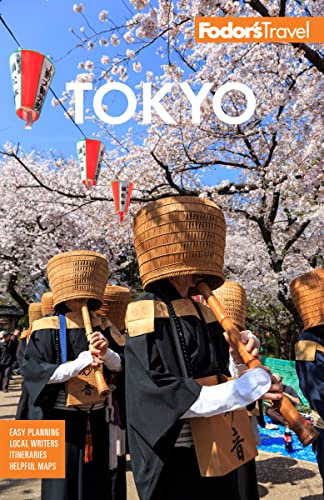Health
Japan is a safe, clean country for travelers, with good drinking water and no major water- or insect-borne diseases. Drugs and medications are widely available at drugstores, although the brand names and instructions are in Japanese, so if you’re on regular medication, take along enough supplies to cover the trip. As with any international travel, be sure to bring your prescription or a doctor’s note just in case. Condoms are sold widely, but they may not have the brands you're used to. Speak with your physician and/or check the CDC or World Health Organization websites for health alerts, particularly if you're pregnant or traveling with children or have a chronic illness.
Specific Issues in Japan
Japan is basically a safe country for travelers. But there is chance of being caught up in an earthquake. Information on earthquakes is broadcast (in Japanese) as news flashes on television within minutes, and during major disasters national broadcaster N.H.K. broadcasts information in English on radio and television. Minor tremors occur nearly every month, and sometimes train services are temporarily halted. Check emergency routes at hotels and higher ground if staying near coastal areas.
Mosquitoes can be a minor irritation during the rainy season, and while there is no risk of malaria there have been cases of dengue fever and Japanese encephalitis in recent years. If you are staying for a prolonged period, and spending time in rural Japan, the Japanese encepahlitis vaccine is recommended. Most ryokans will provide antimosquito coils or an electric-powered spray.
Over-the-Counter Remedies
It may be difficult to buy the standard over-the-counter remedies you're used to, so it's best to bring with you any medications (in their proper packaging) you may need. Medication can be bought only at pharmacies in Japan, but every neighborhood seems to have at least one. Ask for the yakyoku. Pharmacists in Japan are usually able to manage at least a few words of English and certainly able to read some, so have a pen and paper ready, just in case. In Japanese, aspirin is asupirin and Tylenol is tairenoru. Following national regulations, Japanese drugs contain less potent ingredients than foreign brands, so the effects can be disappointing; check advised dosages carefully.




